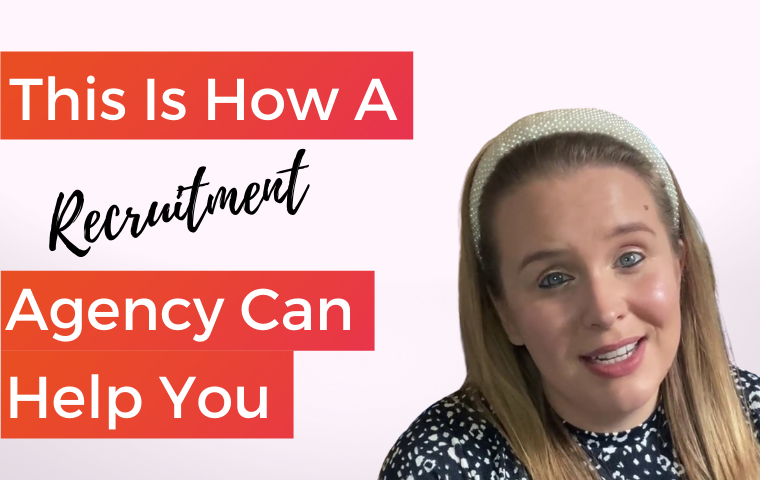The Ultimate Guide To CV Length
17th December 2020
One of the most frequently asked questions by job seekers is "How long should my CV be?"
General advice is around 2–3 pages but don't stop reading this blog post just yet as different lengths work better for different scenarios.
Direct Applications
If you're applying for a job by sending your CV directly to the employer you could be 1 of over 100 applicants and in circumstances like these the sheer volume of CVs means each one will be viewed very briefly. It's important you grab the reader's attention as early as possible – starting with your personal statement.
If you haven't grabbed the reader's attention on the first page of your CV then it's unlikely they'll bother with page 2.
We know, it can be very tough to fit a 20 year career on 2-3 pages but remember you don't have to include detail for every single job, focus on the most recent decade and anything beyond that's relevant to the job you are applying for.
Try to avoid lists of tasks too, the reader will be much more interested in the actions you took and the results of your hard work.
Don't wait too long on page 1 to show the big 5:
- Name
- Relevant qualifications
- Most recent employer(s)
- Most recent job title(s) and
- Dates in post
HR Recruiter Chris Carr explains further, "The 2-page rule probably extends back to when CVs were in paper (not digital) format and could be printed on both sides of a single sheet of A4. It's not the end of the world if your CV goes onto a 3rd page these days as it's simply a case of scrolling down further as opposed to printing off an additional page which could easily get lost!"
Registering With An Agency
If you decide to engage the help of a recruitment agency in your hunt for a new job then one of the first things you'll be asked to do as part of the registration process is to provide a copy of your CV.
Under these circumstances more detail isn't a bad thing as it gives the recruiter much more to work with as they begin the process of really getting to grips with your skills and experience. Agency recruiters will transfer the content of your CV into their own house style and may be selective with the information they provide when shortlisting your profile for a hiring client.
Chris explains a bit more, "I don't recommend writing pages of information for each role, just provide a bit more detail than compared to your direct applications and remember to include your full career path in case the recruiter believes some of your earlier work is relevant. For example, your time as a flight attendant in the early-2000s isn't overly relevant for HR jobs in general, but counts in your favour for applications for HR jobs within the Aviation industry."
At The Beginning Of Your Career
Graduates and school leavers can worry unnecessarily over the length of their CV, but quality is definitely more important than quantity. Consider how your skills and attributes fit the job description and focus on highlighting this to the recruiter. Include information on your interests and non-work achievements which convey your personality and values too.
Academic CV
Academic CVs often break the general 2–3 page rule because there are important additional sections to feature including fellowships, research accomplishments, conference presentations, patents and publications. This important information can create CVs which are more than twice as long as other types of professional CVs.
Edit And Reduce The Length Of Your CV
A CV longer than 4 pages is excessive and lacks user-friendliness, and requires more attention regarding the level of detail you've provided or the style of formatting you've selected. Here's how you can effectively shorten the length of your CV without detracting from your achievements:
Delete Personal Information
There's guidance on this in our blog post What You Don't Need In Your CV, it is worth reading but in the meantime make sure you delete the personal information which is absolutely not required in your CV such as age, marital status, ethnicity and references.
Tailor Every Application - Key Phrases
It's really important that you tailor your CV for every application. Do your research on the employer and consider the key requirements in the job specification, this will help you identify key phrases to include in your CV which make your achievements leap off the page. Be relevant to be selected.
Remove Duplicate Content
When checking your CV for grammar and spelling errors duplicate content often slips through the net for a couple of reasons.
- The misunderstanding that repetition reinforces significance - it doesn't. You don't need to repeat yourself, just make sure you draw the reader's attention to your most relevant significant achievements as early in the CV document as possible.
- Qualifications - there's no need to include an HND in Electrical Engineering if you also have a degree in the same subject. Focus on providing detail for the highest academic achievement.
Concise Personal Statement
An effective personal statement should be no longer than three sentences or four lines of text. This is where you shout about your relevance for the role by talking up your unique selling point. Provide tangible evidence that will grab the reader's attention and avoid the common pitfall of self-diagnosis.
Highlights In Your Work Experience
As we mentioned earlier, focus on providing detail for jobs within the last 10 years and any role beyond that time which is relevant to your application. Highlight your key achievements and responsibilities with bullet point statements rather than long-winded, buzzword-filled sentences.
CV Formatting
A pretty CV does not get chosen over a plain one. In fact, pictures and design can negatively impact your application because AI software cannot read these graphics. Keep the format clean and adopt a universally used font such as Calibri or Arial which is easy to read.
Reduce the font size, but don't go below 10 point for legibility. We've seen CVs where the font is 5 point because the job seeker was so intent on squeezing everything on 2 pages. Big mistake.
There's also nothing wrong with placing dates of employment, job title and employer on the same line if you are tight for space.
Remove Older Projects And Publications
We recently worked with a fantastic job seeker who had started her career in research and had contributed to many publications, but for the past 20 years she had worked in marketing within a completely different sector. The publications ran to over a page on her CV and because they were no longer relevant to the jobs she was applying for they didn't add any more value than the statement we recommended: "Co-authored 12 scientific, published papers on [subject title] between 1998 and 2003, during my research fellow post at [university name]."
If you'd like to learn how to further enhance your CV writing Chris has produced a handy download: A Recruiter's Guide To Improving your CV. If you found this useful pass on the advice and share with a friend!










